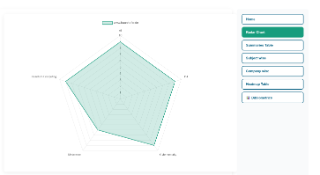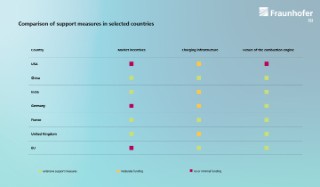The articles in the Fraunhofer ISI blog provide insights into the research topics of the institute. Whether interim reports from current projects, interviews with scientists or statements on current debates: The articles cover the broad spectrum of Fraunhofer ISI and will appear depending on the topic.
Current analyses by Fraunhofer ISI highlight the continuing advance of electric mobility. After a poor year in 2024, sales figures in Germany and other European countries recovered. Chinese manufacturers lead the way in terms of overall figures.
more info







